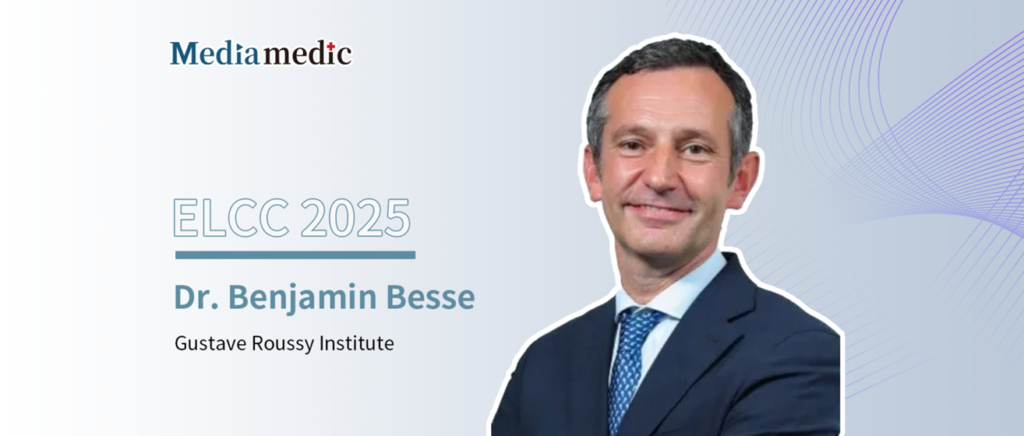
At the 2025 European Lung Cancer Conference (ELCC), Professor Benjamin Besse from the Gustave Roussy Institute presented a report titled “Less is More: De-escalation Strategies in Patient Management and Clinical Trials.” He emphasized that while de-escalation strategies for drug treatments are still being actively explored, clinical applications face challenges, such as insufficient research funding.The concept of de-escalation strategies has been proposed primarily to reduce unnecessary toxicity, lessen the inconvenience of repeated visits, and lower treatment costs. This concept has gained momentum in immunotherapy, especially with PD-1/PD-L1 checkpoint inhibitors—thanks to their long half-life and target saturation properties, which allow flexible use of lower-than-recommended doses. Currently, three main paths are being explored for de-escalation treatment strategies for these drugs.
First Path: Shortening the Treatment Cycle For lung cancer patients, PD-1/PD-L1 inhibitors typically require at least 2 years of continuous treatment, with the continuation of treatment being decided by the clinician. However, recent retrospective studies have shown that continuous treatment beyond 2 years does not bring significant benefits (JAMA Oncol. 2023; 9:1075–1082; Lancet Reg Health Eur. 2024:43:100970). The DIAL trial (NCT05255302) is currently exploring whether shorter treatment cycles may yield similar results to 2 years of treatment: patients receiving 6 months of immune/chemotherapy combination therapy without progression will be randomly assigned to either continue treatment for 2 years or stop the medication (those who progress may undergo immune therapy re-challenge).
Second Path: Extending the Dosing Interval The French PULSE trial is comparing pembrolizumab 200mg every 3 weeks (current standard) with a 6-week dosing schedule (ESMO Open. 2024; 9(Suppl 3)102685). The UK REFINE-Lung study (NCT05085028) extends the dosing interval to 18 weeks.
Third Path: Lower-than-Recommended Dosing Early research on nivolumab in melanoma showed that a 3mg/kg dose regimen (the clinical development dose) had almost identical efficacy to a 0.1mg/kg lower dose regimen. Recent studies on second-line chemotherapy combined with low-dose nivolumab (20 mg) for head and neck cancer in India have demonstrated a significant survival benefit over chemotherapy alone, suggesting that low-dose immunotherapy may be valuable when the recommended dose is not affordable (J Clin Oncol. 2023;41:222–232). It is important to note that this cost-saving benefit applies only to drugs where the cost is proportional to the dose.
De-escalation trials must be based on solid biological evidence and take into account the characteristics of different anti-cancer drugs. For example, the efficacy and toxicity of CTLA-4 inhibitors are closely related to the dosage, and premature de-escalation could pose risks. In KRAS-mutated lung cancer research, sotorasib at a 240mg dose showed significantly worse efficacy than the approved 960mg standard dose (Eur J Cancer. 2024:208:114204). In BRAF-mutant melanoma trials, intermittent dosing of dabrafenib combined with trametinib (aimed at delaying resistance) resulted in worse survival compared to continuous dosing (Eur J Cancer. 2024:196:113455). Other potential strategies for reducing toxicity of targeted therapies include developing chemotherapy-free regimens and strategies for preventive management before side effects occur.
How to Promote the Development of De-escalation Treatments? First, biomarkers need to be identified to recognize patients suitable for de-escalation therapy. Second, more research investment is needed to encourage funding for de-escalation trials, as successful de-escalation treatments can lower long-term costs and cover research expenses. Finally, dosage adjustment evidence should be incorporated into regulatory documents to ensure that clinicians can implement de-escalation strategies based on evidence-based medicine. Cooperation from all stakeholders will be the key to success.
Reference
1.Besse B. Less is more: De-escalation strategies in patient management and clinical trials. European Lung Cancer Congress 2025
Benjamin Besse Gustave Roussy Institute, France


